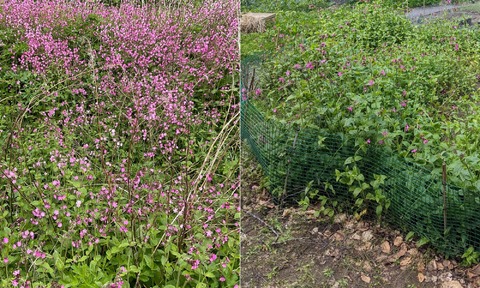‘Commercial seeds could threaten native wildflowers’ claim
19 Oct 2025

Commercial seeds used to help revive meadowland and plant diversity could have the opposite effect on the British countryside, says a study by Durham University scientists.
The examination focused on one species common in the UK and also within wildflower seed mixes – red campion or Silene diocia.
Researchers planted seeds drawn from 10 wild populations beside those from two purchased populations.
The resulting plants were then assessed for size, flowering pattern and genetic variations and revealed substantial differences in outcomes.
The cultivated plants were significantly larger and more vigorous although both types demonstrated high levels of genetic diversity.
However, the commercial plants were genetically distinct, said the researchers, indicating these derived from narrower or shared origins.
Their use could have a significant, negative impact on a species if the two such types cross-pollinated, said the Durham team.
Although smaller and less vigorous, a native plant will have made adaptations to local conditions such as climate, disease and particular pests. This genetic inheritance is vulnerable to being altered and undermined by the introduction of commercial plants, they warned.
Dr Adrian Brennan, the lead author noted: “The results show that it is important to consider within-species variation.”
While red campion populations are at risk, the danger is greater in the case of less abundant native species, suggests the study, which argues for the use of local, genetically varied seed.
The potential adaptive and genetic impacts of habitat creation and enhancement using wildflower species: a case study of red campion (Silene dioica), 2025, by Adrian Brennan, Wayne Dawson and Stephen Willis, is published in Plant Ecology and Diversity.

